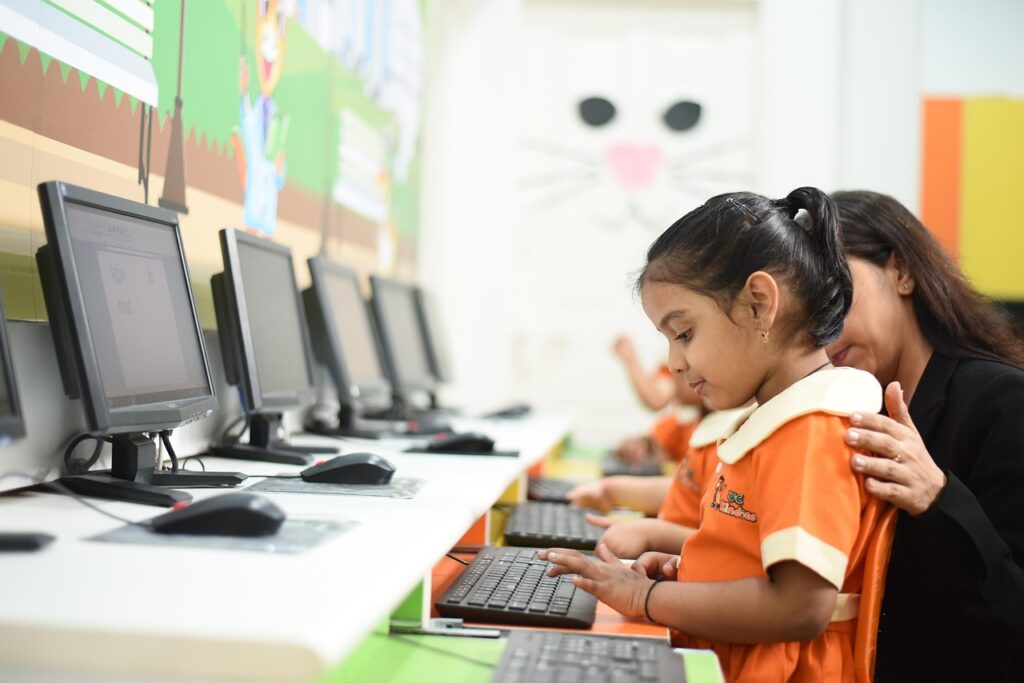Finding pre nursery schools near me is essential for parents seeking a supportive and early foundation for their young children. These schools focus on creating nurturing environments where children can develop basic social, emotional, and cognitive skills through play and guided activities.
Pre-nursery schools near you offer programs designed to promote independence, exploration, and early learning, preparing children for a smooth transition into formal education. Many emphasize holistic development, including physical, emotional, and social growth, ensuring children feel confident and motivated to learn.
Options range from Montessori-inspired approaches to play-based curriculums, each fostering curiosity and self-awareness in different ways. Parents can find local providers that match their educational goals and values, ensuring the best fit for their child’s needs.
Top Pre Nursery Schools Near Me
Choosing the right pre nursery school involves examining how parents and experts rate the programs, understanding the enrollment steps, and evaluating the teaching methods used. These factors impact a child’s early development and the ease of starting their education.
Ratings and Reviews
Ratings commonly focus on safety, teacher qualifications, and learning environment. Parents often look for schools with positive reviews about staff responsiveness and cleanliness. Verified platforms provide detailed parent feedback that covers curriculum quality and communication.
Reviews also highlight flexibility in part-time or full-time options. Many top-rated pre nurseries score highly for offering nurturing, play-based learning with structured routines. Schools with consistent positive scores from both parents and education reviewers tend to maintain high enrollment demand.
Admission Process
Admission to pre nursery schools usually involves submitting an application form, attending a tour or interview, and sometimes completing assessment activities. Parents should expect deadlines early in the year to secure placement due to limited capacity.
Documentation often required includes birth certificates, vaccination records, and proof of residence. Some programs may have waiting lists or priority spots for siblings of current students. Clear communication from the school about timelines and required documents enhances the admission experience.
Unique Teaching Methods
Many pre nursery schools emphasize learning through play, combining music, art, and physical activities to develop cognitive and motor skills. Techniques such as Montessori or Reggio Emilia may be incorporated for hands-on, child-led learning.
Some schools use language immersion or introduce basic STEM concepts through interactive games. These methods focus on socialization, creativity, and foundational skills rather than traditional academics. Customized teaching approaches adapt to each child’s pace to nurture curiosity and confidence.
Essential Factors in Choosing a Pre Nursery School
Selecting a pre nursery school requires attention to practical and qualitative aspects. Key considerations include how easily the location can be reached, the safety features and physical environment of the premises, the qualifications and skills of the teaching staff, and the setup of classrooms to support early learning effectively.
Location and Accessibility
The proximity of the pre nursery school to home or work impacts daily convenience and child comfort. Schools located on safe, well-traveled routes reduce drop-off and pick-up stress. Nearby transportation options also matter, especially if public transit will be used.
Parents should check traffic conditions during school hours and available parking or drop-off zones. A school within a 10-15 minute drive or walk is generally preferable. Accessibility considerations also include whether the school accommodates children with special needs if relevant.
Safety and Infrastructure
Safety is critical in early childhood settings. The school should have secure entrances and exits, with controlled visitor access and surveillance systems if possible.
Physical infrastructure must be child-friendly and well-maintained. This includes age-appropriate play areas with soft, safe surfaces, clear signage, and hygiene facilities consistent with health standards. Check for emergency procedures, fire drills, and first aid readiness.
Outdoor spaces should be enclosed and free from hazards. Indoors, clean and safe furniture and learning tools are essential.
Teacher Qualifications
Qualified teachers impact the quality of early childhood education. Look for staff with diplomas or degrees in early childhood education or related fields.
Experience with children in the 2-4 year age group is important. Teachers should understand child development stages and be trained in recognizing and responding to emotional and cognitive needs.
Ongoing professional development and positive teacher-to-child ratios (preferably 1:8 or lower) also signal a well-run program.
Classroom Environment
Classrooms should stimulate learning and creativity while being calming and organized. Spaces with natural light, child-sized furniture, and clearly defined areas for different activities support diverse learning styles.
Rich learning materials—such as books, puzzles, and sensory toys—must be easily accessible to children. The environment should encourage social interaction and independence while promoting safety and comfort.
Noise levels and clutter should be managed to avoid overstimulation or distraction. Overall, the setup should align with a balance of play and early educational goals.


